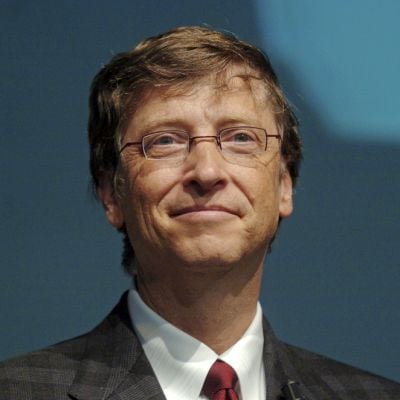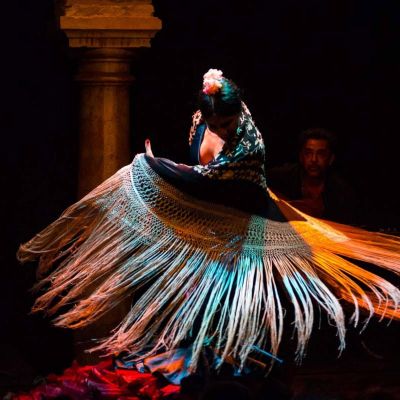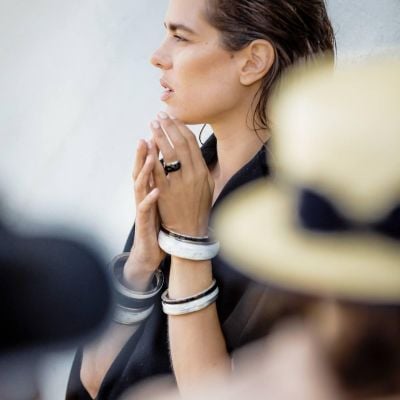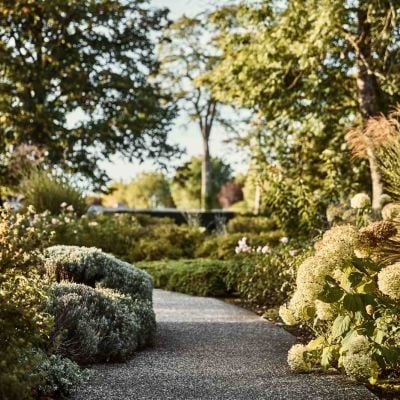Golden Girl

When teenage Yusra Mardini shot to fame as a heroic refugee swimmer who made it to the Olympics, it inspired the start of a philanthropic journey.

It’s been a while since Yusra Mardini swam competitively — she raced at the 2020 Summer Olympics in Tokyo with the Refugee Olympic Team — and she admits it’s hard as an athlete to abandon what you once breathed, ate and slept.
“I am distancing myself a bit from swimming, as I’m still grieving a bit for my past life,” she says, as we chat at the Global Citizen Forum in Ras Al Khaimah in December. “I already achieved my dream. I participated at the Olympic Games.” (She competed twice, first at Rio in 2016, where she finished 45th and 40th in the two races she entered).
“Sometimes you have to be smart, and realise, okay, I’m not going to win a gold medal. So, let’s do something new in life.”
In typically understated Mardini style, this something new is something quite extraordinary for any 25-year-old to undertake. But, of course, Mardini is no ordinary 25-year-old.

Her story has become familiar to many since 2022 when the Netflix film The Swimmers came out: a story about her and her sister Sara’s journey across the Aegean Sea to flee her home in war-stricken Damascus, including a heroic three-hour-swim alongside their sinking refugee boat to guide it to safety.
As a result of their actions, everyone in the ramshackle boat survived. Through several hair-raising twists and turns, they went on find their home in Berlin, Germany. Here, while housed in a refugee camp, she would meet her coach, Sven, who would help her to train for the 2016 Olympics as part of the refugee team. Later, her parents and younger sister Shahed would join her in a new home in Berlin.
But after telling her story thousands of times, Mardini wants to find her voice in another way. Last year she moved to downtown Los Angeles to study film and TV production at the School of Cinematic Arts at the University of Southern California.
“I want to make more documentaries where I tell inspiring stories that can create change in the world. I was inspired by The Swimmers and the impact that had. I knew I could talk about my story all the time, but I thought, what is the other way I can create change on a larger scale?”
One of her other dreams now is building the Yusra Mardini Foundation, which she launched last June on World Refugee Day. Her former coach Sven Spannekrebs (and one of her closest friends now) is also a driving force on this project. The aim of the eponymous foundation is to advance sports access to refugees, as well as help refugee athletes with sports scholarships and rebuilding their lives in host countries. “From my own experience, sport is therapy,” she says. “My story is the definition of a success story of integrating a refugee, and that’s what we want to try to replicate.”

The first idea is to bring one or two refugee athletes a year and resettle them in Canada, a project in collaboration with World University Service of Canada, the International Olympic Committee and the Olympic Refuge Foundation. Another initial project is a partnership with the United Nations High Commission for Refugees (UNHCR), of which Mardini became the youngest-ever goodwill ambassador in 2017.
This project is to also provide regular sports classes for children in refugee camps — who knows, as Mardini points out, maybe the next Michael Jordan is in one of those camps. “I want to be able to let go of everything when they’re doing sports, I want to make sure everyone has the opportunity to shine,” she says, adding that she hopes refugees who go through the programme will then become advocates for other refugees.
Funding has started to come in. Mardini has signed a two-year collaboration with sustainable Swiss watch brand Oris, which has pledged an annual donation to her charity. In return she is its sustainability ambassador. Other donations have come from a sheikha in the Middle East, as well as events such as the silent auction at the Global Citizen Forum.
“The joy this gives me is more important than any gold medal,” says Mardini. “So much still must change for refugees, as the numbers keep increasing and their opportunities become more limited. I am grateful to have the opportunity to push for change, using the power of sports, which has been central in my life, to show the world that everyone must be treated equally.” The numbers are overwhelming, admit Mardini and Spannekrebs. According to UNHCR, the number of displaced and stateless people reached 117.2 million at the end of 2023.
“We know the difficulties worldwide and it seems like Europe is transforming in the wrong direction,” says Spannekrebs. “I look back at 2015, when the world was welcoming to refugees, and hope that sentiment will return at some point,” he adds. Mardini says: “When I went to Rio, I realised my dream was not just my dream anymore, I represent something more than just swimming. Now I get to help millions of refugees access sport. Sport is what made me what I am today, which is why I want to give that opportunity to others.”








